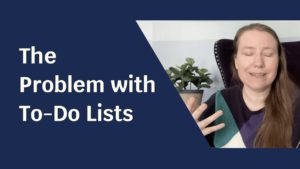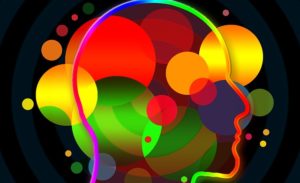
When You Want Friends…and Don’t
Do you have conflicting thoughts about the idea that self-acceptance can actually work as a way to have better relationships?
Knowing you want to make your life better, but not knowing how, can feel like being lost in the woods.
These principles are my guiding compass in blazing a new path.
It is not a disorder, a disease, an abnormality. It is part of the natural range of neurological expression that has been present throughout the history of humanity.
The way our brains process information analytically, the way our sensory systems are highly attuned to our environment, the way we socialize directly and openly, the way we tend towards justice and equality, and other common autistic traits, are wonderful assets that the world needs more of.
The challenges we commonly struggle with, I believe, have more to do with the limitations of our modern society than with anything inherent to autism.
People who are quirky, weird, or “different” are often the most interesting people I know.
If everyone thought the same, behaved the same, and felt the same, human civilization would collapse under the weight of our focused stupidity.
When we think differently, look different, like different things, come from different places, speak different languages, when our bodies work in different ways, these and other differences lead to different perspectives.
When honored, these different perspectives challenge us to rethink our assumptions; it is that liminal space that is the wellspring of innovation, creativity, art, science, relationships, beauty, and growth, leading to improvements that benefit far more people than those they originally intended to serve.
Many of us spend decades and either not knowing we are autistic, or trying to deny the fact. Either way, when we put so much effort into being “like everyone else,” we are essentially denying who we truly are.
That pretense takes so much energy and attention to maintain, it is tiring and stressful. Over time that builds up and creates a whole host of problems, including feeling tired all the time, brain fog, executive dysfunction, anger, burnout, sickness, addiction as a coping strategy, poor relationships, and much more.
When you accept who you really are, what you really need, and what does and does not work for you (as opposed to what “should” work), you can come up with better strategies for communicating, socializing, working, living, and being who you are, even amidst systems that are not designed for us.
Neurotypical communication styles are not inherently better than autistic styles. Autistic communication patterns are not a lesser, improper, or disordered version of how one “should” communicate. Autistic communication styles are valid in their own right.
I also believe that autistics and non-autistics can learn to communicate with each other well and grow positive, mutually supportive relationships.
When people are open to the idea that their habituated patterns of communicating are only one possible option, and are willing to set aside assumptions and expectations to openly discuss what they mean and exchange thoughts and ideas in creative ways, all differences in communication styles and methods can be bridged so that people truly connect with each other.
Society tries to teach us that there is only a limited range of options for how to be in the world (generally along the lines of go to school, get a job, get married, have kids, buy lots of stuff, work for decades, retire, die), but every possible rule has been broken, often by people that society deeply admires.
I won’t argue that every possible option is good or worthwhile, and some are flat out evil, but the range of options are not confined to either “normal” or “evil.”
Doing things that challenge society’s conventions and expectations is not inherently evil. It is sometimes necessary. And there is a lot right now that needs to be challenged. Starting with the thoughts in your head that tell you that that’s not okay.
“One size fits all” education systems actually fit only a very narrow range of people. Conformity-driven workplaces disregard differences in sensory needs, cognition, socialization, disability, etc. But despite the messages these organizations often send us, we are not broken for not fitting their model. Rather, their model is broken.
We are perfectly capable of contributing meaningfully to make the world a better place than we found it when we are allowed, or take, opportunities to be our best selves.
When we begin to look for other options than the ones society has handed to us, we can find different ways of learning, working, living, loving, and thriving.
Some of those changes may be big, but more often they are small tweaks that make a big difference.
It can be uncomfortable not to have a clear path to follow, but if we can tolerate that uncertainty for a little while, and keep experimenting, adjusting, and refining, we can make a life that we love to life.
And we might just be blazing a path that others would love to follow.
However, most neurodivergent people have been taught to ignore, disregard, and discredit our instincts as part of fitting into a society that does not fit us well.
We begin to access that information by learning to make small choices that feel right and good inside, and those small adjustments add up over time to a life that feels right and good.
It’s not about learning, it’s about unlearning.
Coaching, the way I do it (as taught by Martha Beck and informed by my own autistic experience), helps you uncover the deep beliefs that you’ve been taught about yourself, that have been hurting you and holding you back, and gently question them to find out if they are really true or just social conditioning.
As you unlearn each ableist belief, each bit of conditioning from your family, society, etc., new options will begin to emerge and you can start trying out ways to make your life better, one tiny bit at a time.
As you do, you will find your way through the deep dark woods and forge your own path towards a better life.
I can come alongside you on your journey, ask you a lot of questions, occasionally share my own experiences, offer resources occasionally, but I don’t offer much advice or tell you what to do.
You are on your own journey. Mine is different. You are the expert in what will work for you.
I’m here to help you learn to trust yourself enough to figure that out, to help you process, to help you question, to validate that it is okay to be you, and offer tools to make decisions along the way. But those decisions are yours alone to make.

Do you have conflicting thoughts about the idea that self-acceptance can actually work as a way to have better relationships?

I am a huge fan of lists, but there’s an important problem with to-do lists that I want to talk about.

Almost all autistics have a more intense sensory experience of the world than the majority of people. Understanding what that means for you gives you power.
We don’t spam or sell. Promise. Unsubscribe at any time.
Read our privacy policy here.
Privacy Policy Heather’s Boundaries (T&C)
The information on this site is not intended or implied to be a substitute for psychotherapy, medical advice, diagnosis, or treatment.
© 2020-2024 Autism Chrysalis LLC.